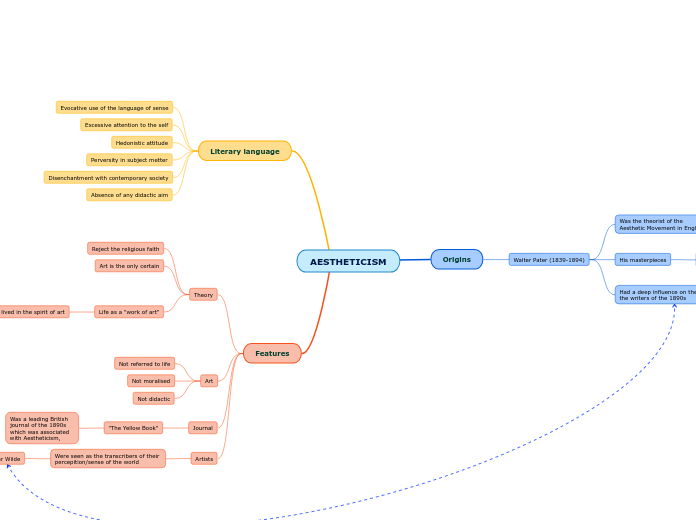AESTHETICISM
Origins
Walter Pater (1839-1894)
Was the theorist of the
Aesthetic Movement in England
His masterpieces
Were immediately successful with the young
because of their subversive and "demoralising" message
"Studies in the History
of the Renaissance" (1873)
"Marius the Epicurean" (1885)
Had a deep influence on the artists and
the writers of the 1890s
Literary language
Evocative use of the language of sense
Excessive attention to the self
Hedonistic attitude
Perversity in subject metter
Disenchantment with contemporary society
Absence of any didactic aim
Features
Theory
Reject the religious faith
Art is the only certain
Life as a "work of art"
Life should be lived in the spirit of art
Intense experiences
Feeling all kind of sensations
Feeling great sensations
Sense of the "attreactive" and the "gracious"
Art
Not referred to life
Not moralised
Not didactic
Journal
"The Yellow Book"
Was a leading British journal of the 1890s which was associated with Aestheticism,
Artists
Were seen as the transcribers of their
percepition/sense of the world
Oscar Wilde
Was, in his twenties, an
exemplary Aesthete
